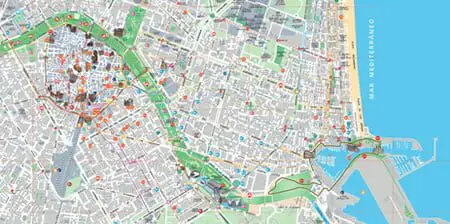As in practically any language, the verb hacer is one of the most used and recurrent verb, also when learning Spanish. However in our language, its meaning will vary depending on the context. Grab your pencil and learn with this weeks post.
The verb hacer is one of the most versatile verbs when learning Spanish. In fact, in your clases, with friends, in conversation classes….you will see that, without you having to, you will use it. It is very easy to conjugate and has many possibilities. Mastering it is very important as you will be learning an interesting and important verb when it comes to learning Spanish and mastering the language, which is what its all about. Right? Check out these 4 uses of the verb hacer depending on the context.
We can use the verb hacer with full lexical meaning when we refer to actions of making, creating or producing something. Some examples: “He he hecho un cuadro bonito” (I have made a beautiful painting) or “Pedro nos hizo un regalo por nuestro aniversario” (Peter gave us a present for our anniversary). We can also use it in another context, when it groups all action verbs together in its meaning. “Si estudias mucho, harás muy bien tus exámenes” (If you study hard, you will do very well in your exams) or “Haz como yo y estudia la lección” (Do like me and study the lesson). This is a meaning which, for example, that is adopted by the verb hacer in the questions, “¿Qué haces?” (What are you doing?), ” Estoy descansando” (I am resting). Here the verb hacer will only be completed when there is an answer. If not, no.
![]()
Another use of the verb hacer depending on the context is when it is used as a support verb, it is essential that you memorise it when learning Spanish. You will see that there are many expressions in which the verb hacer forms a unit of meaning with a noun. In these cases, the verb provides all the grammatical contents of time, mood, person, number and aspect and the general meaning of action. For example, “Hacer caricias” (To caresses) is caress: “Hacer la comida” (To make food) is to cook: “Hacer el trabajo” (To do work) is work.
However there are exceptions. When the verb hacer is empty of meaning and the expression does not point to any action, such as “Hacer tres días” (3 days ago) or “Hace calor” (it’s hot). And with idioms and expressions like “Hacer carrera”, which means to be a talented person; “Hacer un buen papel”,which means to look good.
And another way is when to do means not to do something. This also exists in other languages, think about it. We are using the verb hacer to mean the opposite, that nothing is done: “Hacer oídos sordos”, which means to ignore or “hacer castillos en el aire”, which means to imagine things that are often impossible.






